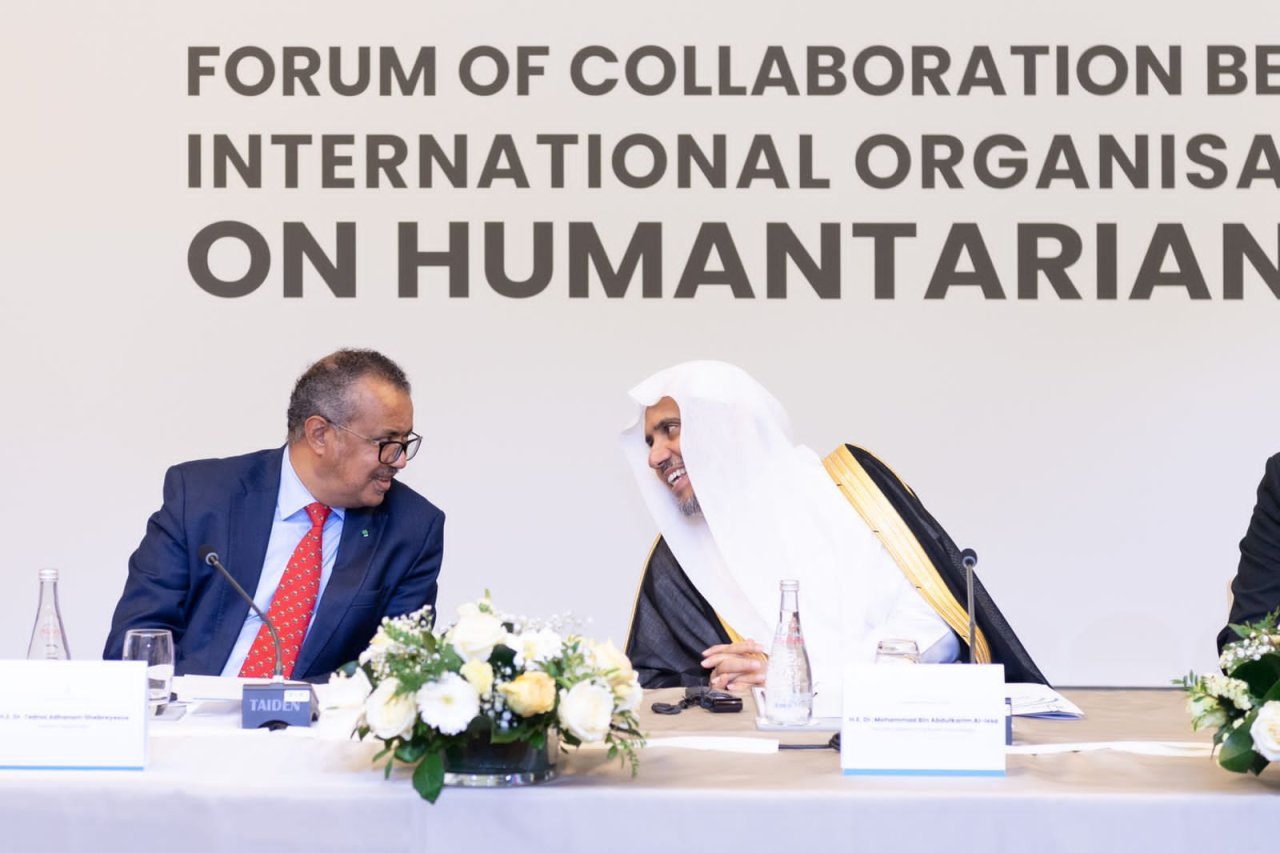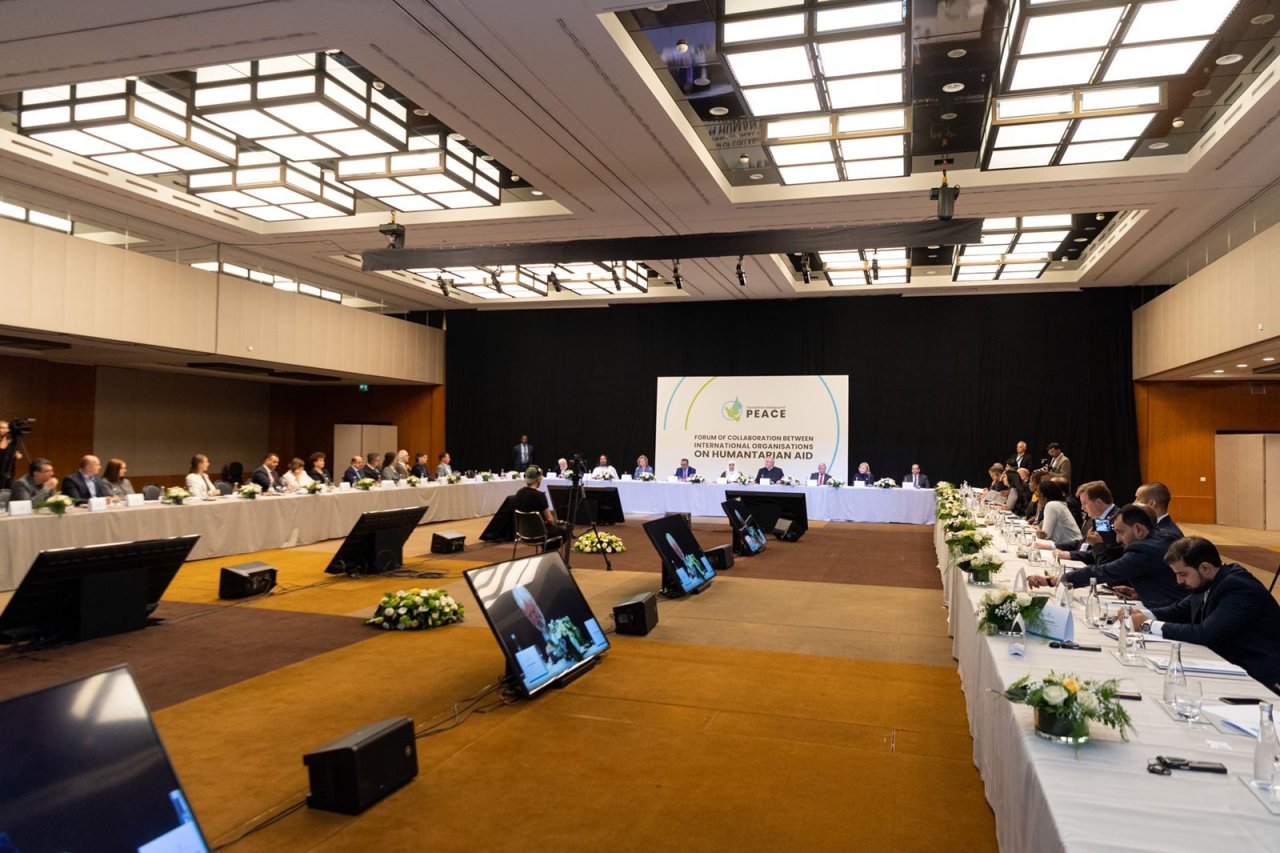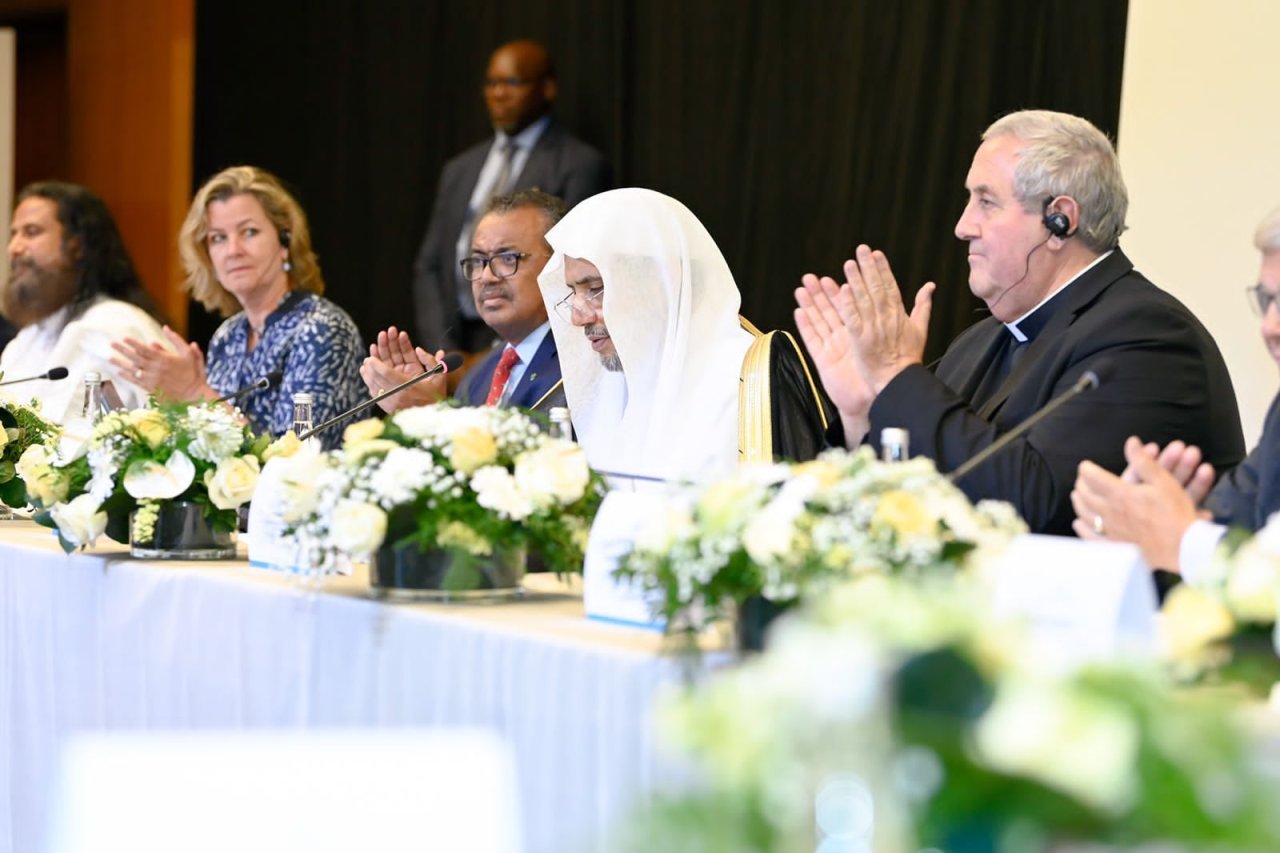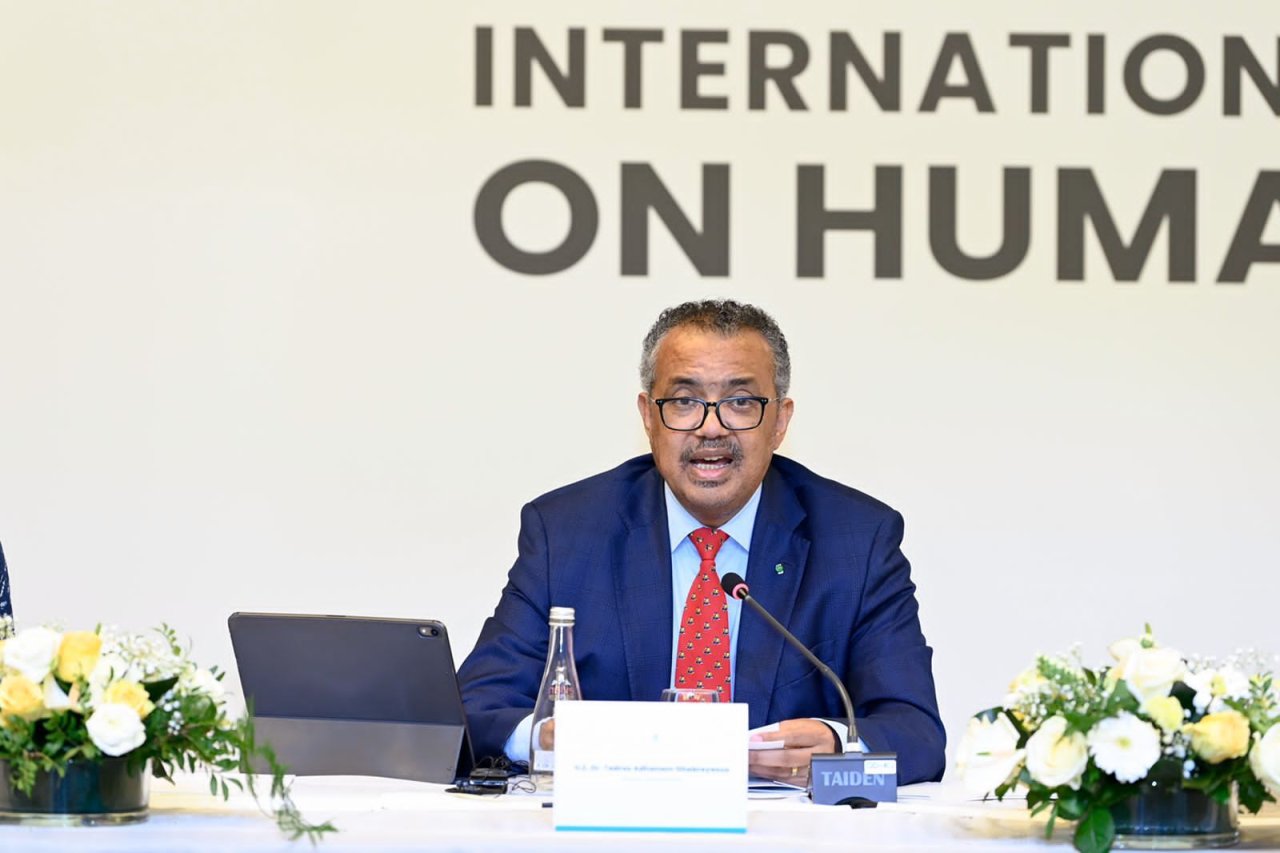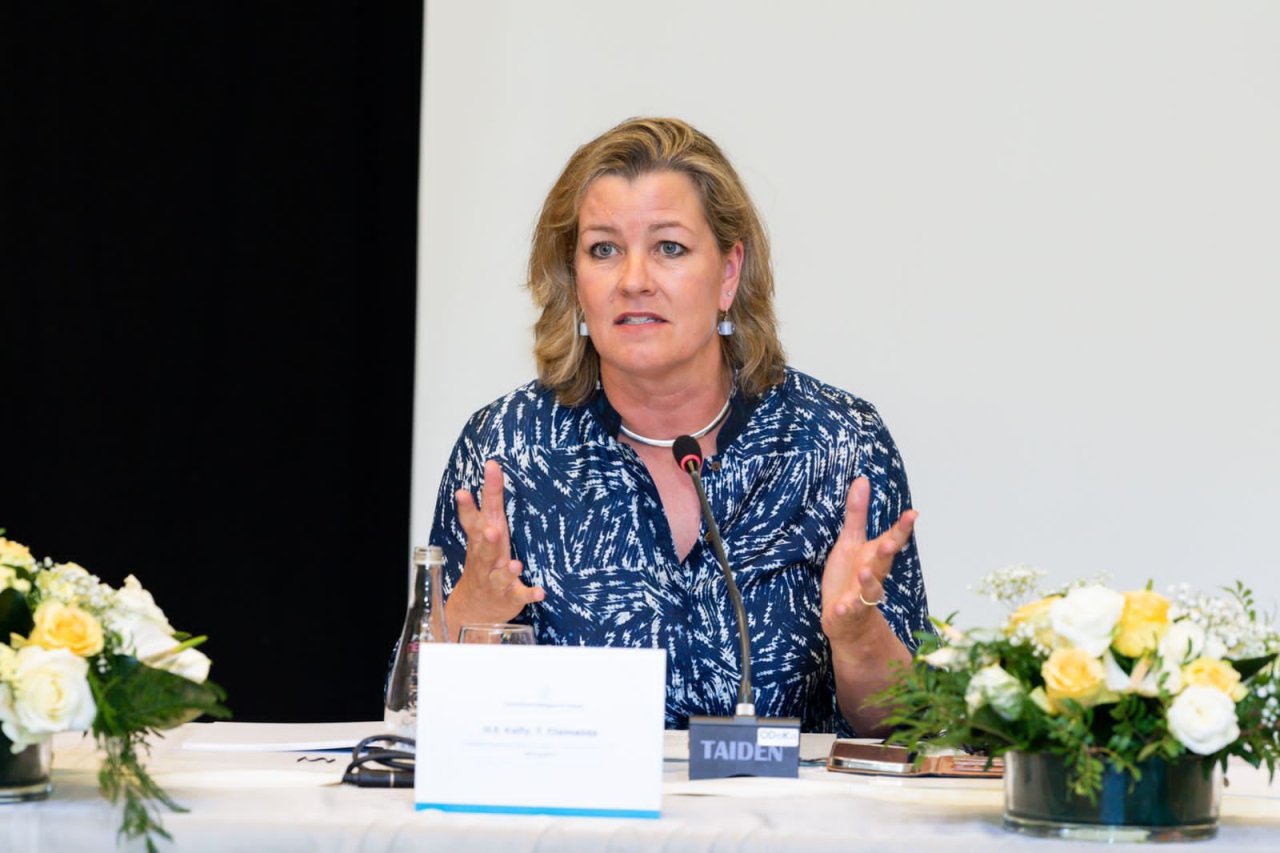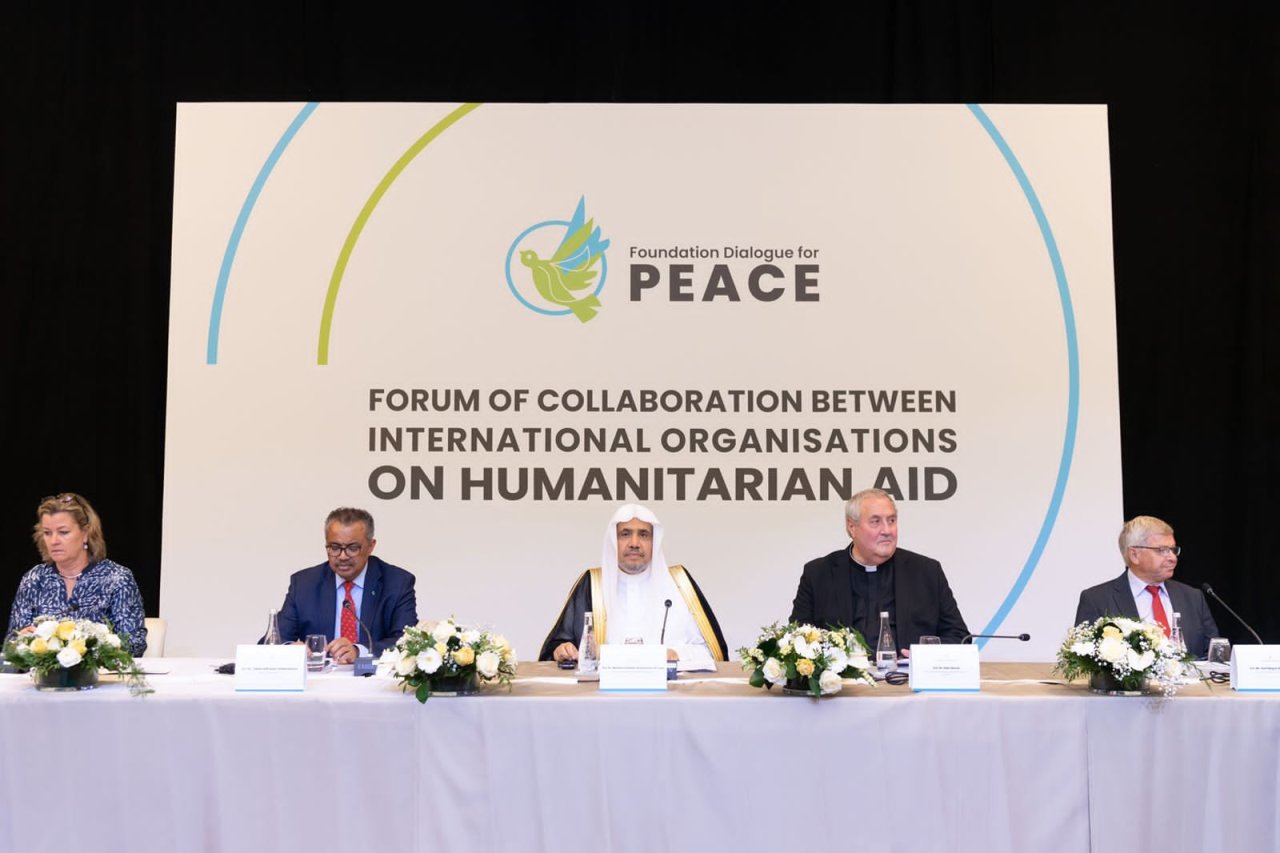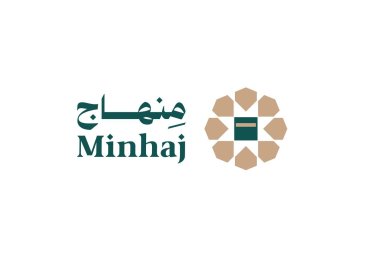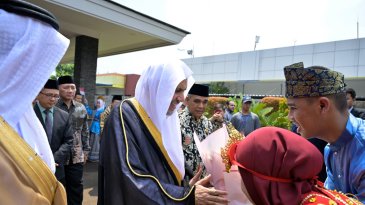Muslim World League is the guest of honor of the 1st meeting of heads of international organizations active in humanitarian work
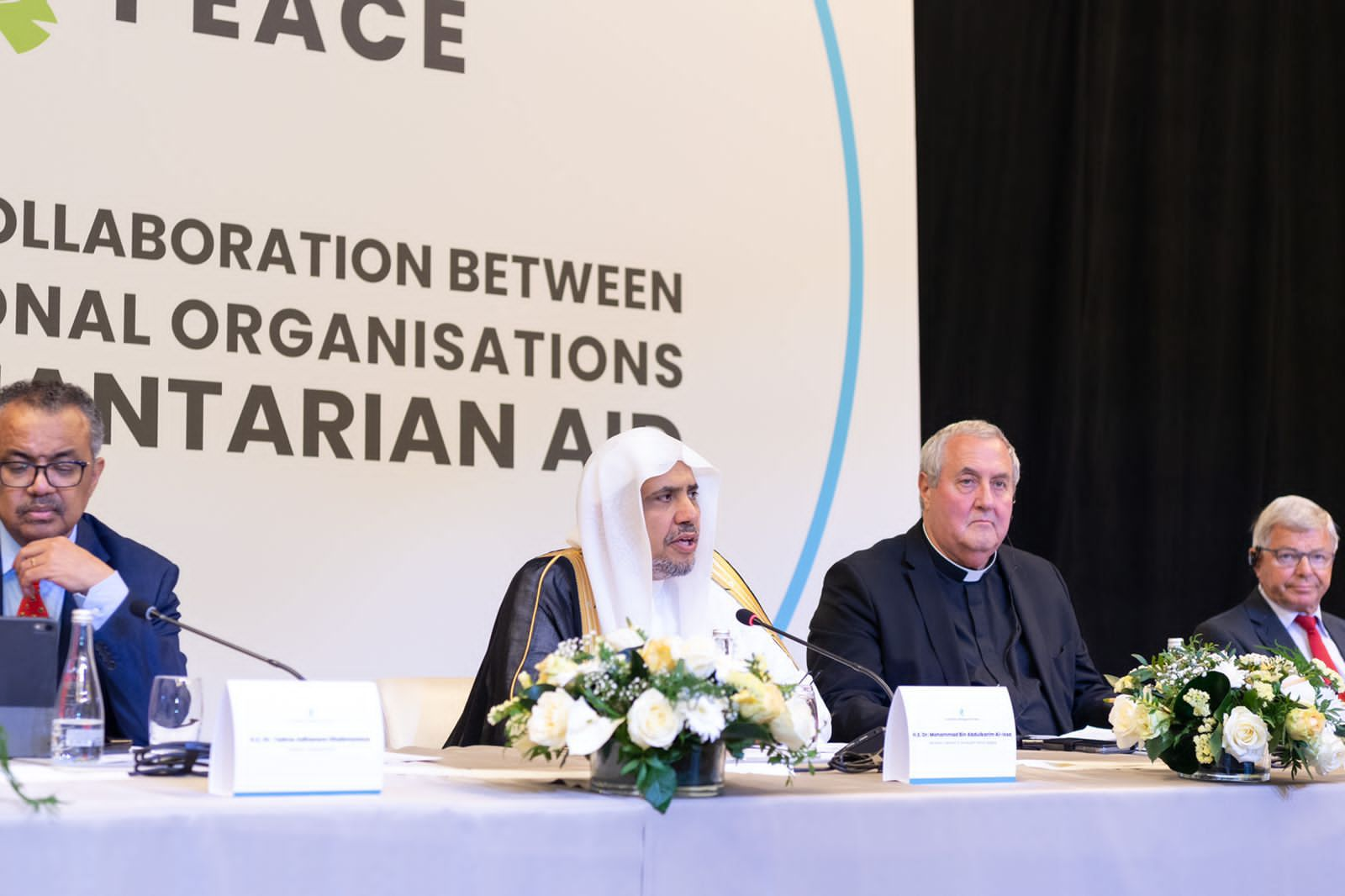
Clear-cut reflection of the strength of the "religious diplomacy" and the coordination of the response to the accelerating global transformations and their humanitarian repercussions:
Muslim World League is the guest of honor of the 1st meeting of heads of international organizations active in humanitarian work
Dr. Al-Issa: The abstract religious motive is one of the strongest, most vital and sustainable motivations of the humanitarian action.
The humanitarian work of the MWL is based on faith and humanity, without discrimination.
Dr. Al-Issa announces the launch of an international prize to reward the most important efforts in serving humanitarian works.
The Director of the World Health Organization calls for urgent and effective support for medical workers.
UNHCR: The crisis of the displaced people worldwide is so huge that no organization can handle it alone.
Norwegian Prime Minister: NGOs are the most important effects on the charitable sector.
SG of WCC: Religious organizations and communities are at the vanguard and long-term foundation of humanitarian action.
The Secretary General of the International Federation of Red Cross and Red Crescent Societies: Challenges facing humanitarian action are not limited to wars and clashes.
Director of the World Food Program: We can confront conflicts and wars, eradicate hunger and establish peace through the cooperative efforts.
Geneva - MWL
Through clear-cut reflection of the strength of “religious diplomacy” and the importance of presenting it and its impact on discussions of all global issues, His Excellency Secretary-General of the Muslim World League, Sheikh Dr. Muhammad bin Abdul Karim Al-Issa, was the key guest of honor at the high-level forum, which brought together the heads of major reginal and international organizations active in the field of humanitarian work - for the first time in its history. This aims to coordinate the response to the accelerating global transformations and their novel humanitarian repercussions, and formulating an integrative vision for cooperation among entities active in the sphere of humanitarian work around the world.
Activities of the forum, hosted by Geneva, were launched under the theme: "Cooperation among International Organizations in the Humanitarian Fields". It included - in addition to the Muslim World League and the World Council of Churches - the World Health Organization, the United Nations High Commissioner for Refugees, UNICEF, the International Federation of Red Cross and Red Crescent Societies together with the World Food Program and a group of the most prominent international leaders influential in the fields of humanitarian work.
The forum began with a welcoming speech delivered by the head of Dialogue Foundation for Peace, expressing his hope that the forum would reach a constructive cooperation in order to achieve its goal, which is the international humanitarian work contributing to bringing peace to the world. This was followed by the speech of the guest of honor in which His Excellency Dr. Al-Issa affirmed that the unity of origin and the many human commonalities and denominators make it imperative for us to look at each other as brothers and realize the meaning of this through sympathy with each other by word and action.
His Excellency Dr. Al-Issa expressed his great appreciation for the distinctive humanitarian effort carried out by the World Health Organization in the context of the global suffering from “COVID-19” under the leadership of its Director General, Dr. Tedros Adhanom Ghebreyesus, and to the rest of the international governmental and non-governmental organizations and institutions that implement a leading humanitarian work. Dr. Al-Issa, at the same time, regretted that the humanitarian action has not reached the required level of solidarity and sympathy, and the gap between the rich and the poor remains wide, despite the existence of one international system.
Dr. Al-Issa continued, "We will not object to the existence of the rich and the poor, as this is the nature of life, but we call upon the rich to alleviate the suffering of the poor by supporting them, especially in the necessities of life such as food, medicine and education." He also added, "It is painful, for example, that the rich get the “Covid-19” vaccine while the poor do not get it, or they only get it late or some doses. Yes, the rich entities have the right to safeguard themselves, but they should not forget others."
His Excellency the Secretary-General of the Muslim World League, in his speech, touched upon the motives of humanitarian actions, explaining that they are multiple, some of which are abstract humanitarian ones, or motivated by international commitment and others are material causes, but they all serve the interests of the needy and the poor worldwide.
His Excellency said: "There is also another reason that drives and motivates greatly towards humanitarian work, which is the religious aspect, considering the abstract religious motive as one of the strongest, most vital and sustainable motivations of humanitarian action. He added: "That is why we believe that voluntary work is one of the strongest pillars of the work of humanitarian organizations around the world. Honest and abstract religious sentiments heal and cure wounds, quench thirst, feed the hungry, educate, train, and sponsor orphans and widows.
Dr. Al-Issa added: "It is very important that those actions are religious, abstract and unconditional works," stressing that any religious, political or other barter (swap) for humanitarian work whether direct or indirect is a smear of the beautiful image of humanitarian work with an extortion that knows no meaning or value for human and religious values. He stressed the importance of building a human being to be a true human being who sympathizes with his fellow human being without regard to any other consideration. He also confirmed: “This would only be through the proper moral formation of our children and young people on these supreme values, and they are a shared responsibility among the family, education and the environment surrounding and affecting us."
His Excellency Dr. Al-Issa reviewed the sincere and arduous efforts of the Muslim World League in all humanitarian works worldwide, stressing that its premise is faith and humanity without discrimination, declaring the League's intention to launch an international prize to reward the most important efforts in the service of humanitarian works.
For his part, Director-General of the World Health Organization, Dr. Tedros Adhanom Ghebreyesus, called for supporting the medical personnel, to carry out their duties in saving the lives of refugees and displaced persons, urgently and effectively. He said, "I grew up in a war zone, and the smell, sounds, and scenes of war overwhelmed my senses. I recall these painful memories every time I visit a combat zone, and I wish that would stop immediately." He also explained that climate change and natural disasters cause calamities no less than those caused by conflicts, calling for this not to be taken lightly, and to be constantly prepared for it.
In the meanwhile, the speech of the United Nations High Commissioner for Refugees, delivered by Ms. Kelly Clements, emphasized that peace is the permanent cure for the displacement crisis, as well as the cure for many of the hardships facing human beings today. She warned that the crisis of displaced people in the world is so huge that no organization can handle it alone. She also extended her gratitude to the Muslim World League, for its keenness to explore the best ways in which we can cooperate to provide humanitarian aid and deliver it to those deserved.
Former Norwegian Prime Minister, Mr. Kjell Magne Bondevik, considered NGOs the most important effect in the charitable work sector and the delivery of humanitarian aid to those deserved. He stressed the need not to underestimate the importance of the activities of independent organizations and associations, as most of the aid comes from those bodies and not from governments that are often satisfied with coordinating with countries that benefit from aid.
The Secretary General of the World Council of Churches, Dr. Iwan Soka, said that despite the importance of the work of international humanitarian agencies, national and local faith-based organizations and communities are at the vanguard, and the long-term foundation, of humanitarian relief and development. He explained that churches do not carry out humanitarian work for the sake of evangelization, or for another hidden agenda, and they should not do that, but rather they proceed from their identity in every work.
For his part, former Pakistani Prime Minister, Mr. Yusuf Raza Al-Kilani, a humanitarian activist, stressed the need for cooperation and joint action to provide aid in an effective and timely manner to the suffering peoples, confirming that everyone should believe that through effective and sincere communication, we can find solutions to the biggest problems in the whole world.
The Secretary General of the International Federation of Red Cross and Red Crescent Societies made clear that the availability of local leadership for humanitarian work is a vital issue. We have seen how the health closure and travel restrictions tied our hands in organizations, and it became the only bet on local associations.
He pointed out that the challenges facing humanitarian work are not limited to wars and clashes, but include climate change, economic collapse and discrimination in all its forms along with the effects of the Corona crisis.
Executive Director of the World Food Program, Mr. David Beasley, said: “Let us work together to achieve peace around the world. There is no doubt that the entire world can confront conflicts and wars eradicate hunger and bring peace through cooperation.” He warned that soaring food prices and inflation had pushed more than 48 countries around the world to situations of instability, political unrest, riots and protests.
International Director of the Art of Living Foundation, Mr. Swami Jyothirmaya, noted that peace is the basic and key element in every development project, and its realization allows everyone in the world to establish a good family, a safe society, and a successful country. He said, "We have recently discovered that psychological stress produces violence, and this may explain many of the waves of violence we are experiencing today in post- Corona crisis, which has caused psychological pressure on everyone."
